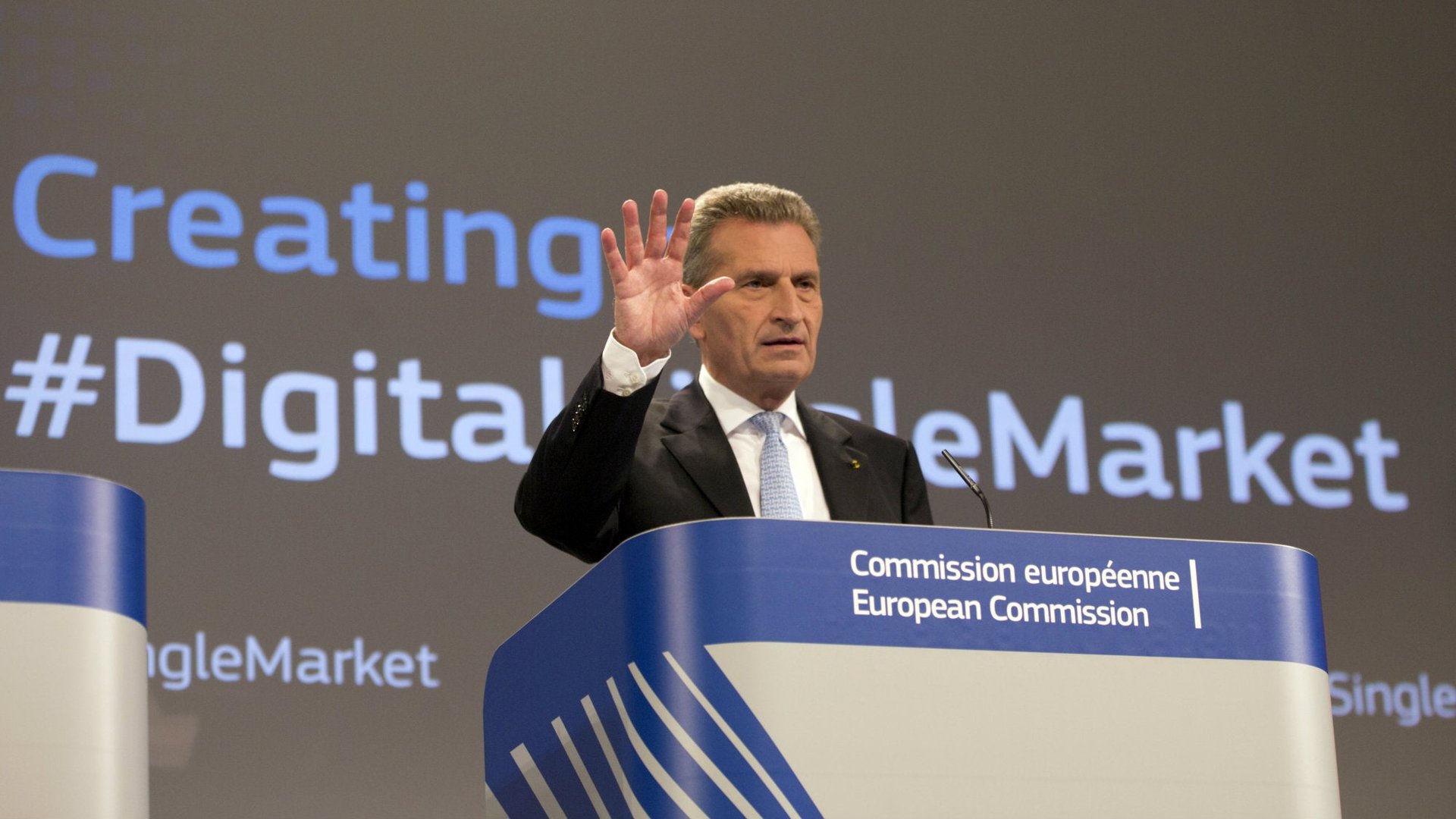The EU is trying to make an online version of itself
Generally speaking, the idea of Eurocrats in Brussels buzzing about “pillars” and “key actions” isn’t the sort of thing that gets Europeans, let alone anyone else, excited about policy. But an announcement today (May 6) in which both terms featured heavily represents perhaps the most important and most ambitious thing to come out of the European Commission in years.


Generally speaking, the idea of Eurocrats in Brussels buzzing about “pillars” and “key actions” isn’t the sort of thing that gets Europeans, let alone anyone else, excited about policy. But an announcement today (May 6) in which both terms featured heavily represents perhaps the most important and most ambitious thing to come out of the European Commission in years.
Prosaically titled the “digital single market” strategy, the plan is to do for the European internet what the EU did for physical trade: tear down barriers and open up markets.
According to the Commission (pdf), only 7% of small or medium-size European businesses sell across borders; only 4% of online video content is accessible across borders; and businesses face costs of at least €5,000 when trying to trade in another EU country. All these barriers make Europe a much more divided place on the internet than in the physical world. They also may help explain why Europe has failed to produce any giant internet companies of its own. The EU market is 500 million people strong, but they are dispersed across 28 member states, each with its own regulations, taxes, and bureaucracy. American companies face few hurdles of the sort on their home turf, giving them comparatively easy, unimpeded access to a domestic market of 300 million consumers.
The European Commission strategy announced today by Andrus Ansip and Gunther Oettinger, the commissioners in charge of the proposal, includes 16 scintillating agenda items, including “more affordable parcel delivery,” “a modern, more European copyright law,” and ”a review of the Satellite and Cable Directive.” They may not set the pulse racing but they are meant to address, from various angles, the barriers to online trade in Europe.
Yet it is still just a plan to do things, rather than any formal announcement of how the barriers between member states actually will be eliminated. Asked why Europeans should trust the Commission to see its proposal through when several other high-profile legislative efforts have remained mired in debate and politics for years, Ansip ducked the question.
Still, it is a start, and an important one for Europe. Indeed, so important is the digital single market to the present commission, the 28 commissioners were somehow persuaded to participate in a rather goofy, if endearing, video to explain it:
[protected-iframe id=”addb279b2b76fa8c89dc9623266a6a53-39587363-45161649″ info=”http://ec.europa.eu/avservices/play.cfm?ref=I101631&videolang=EN&devurl=http://ec.europa.eu/avservices/video/player/config.cfm” width=”670″ height=”378″ frameborder=”0″ scrolling=”no”]